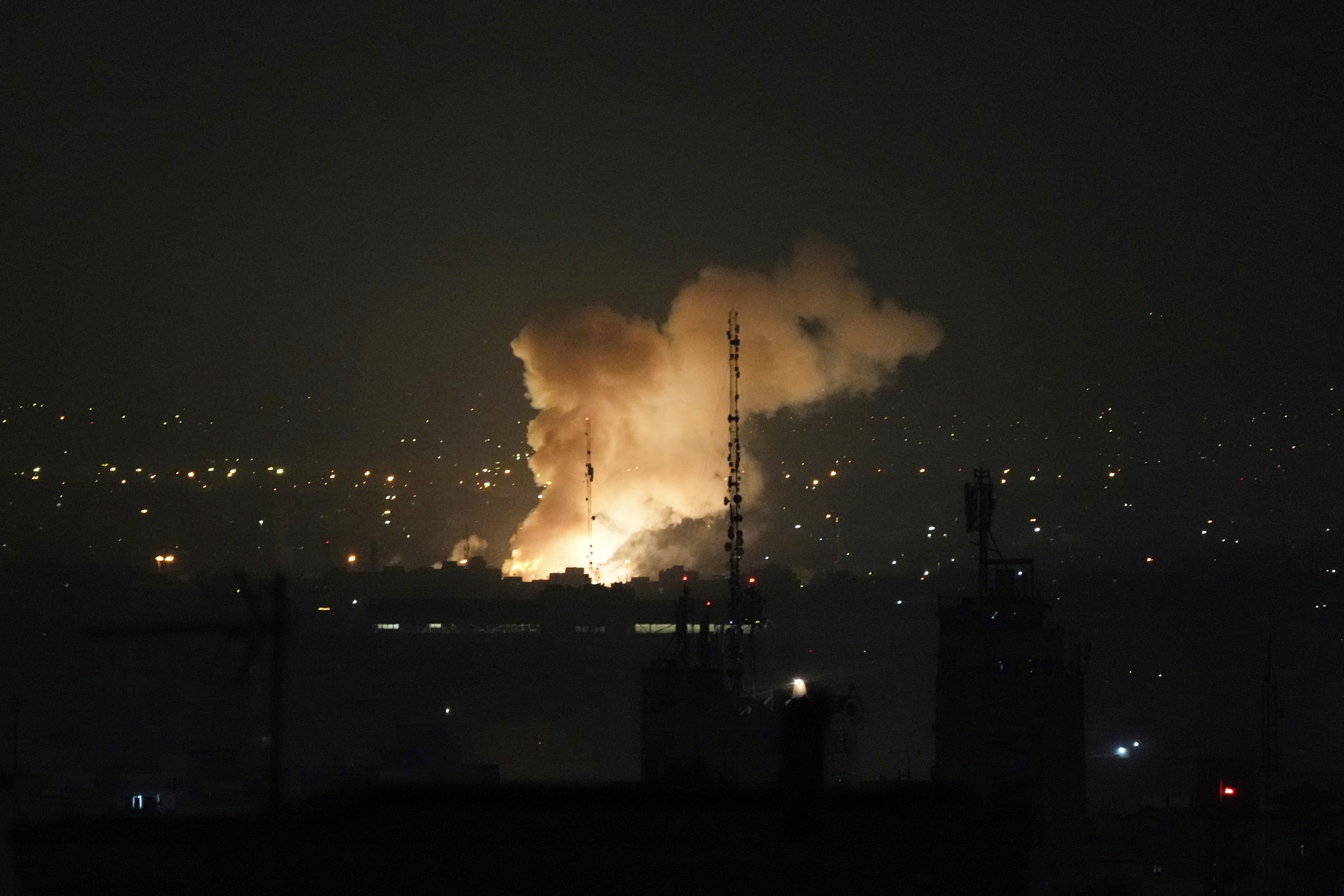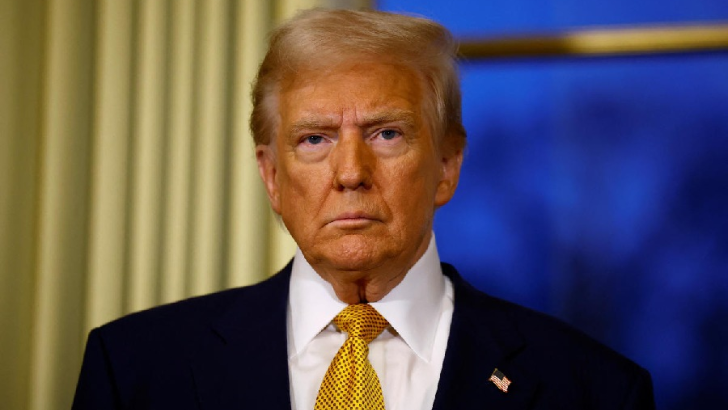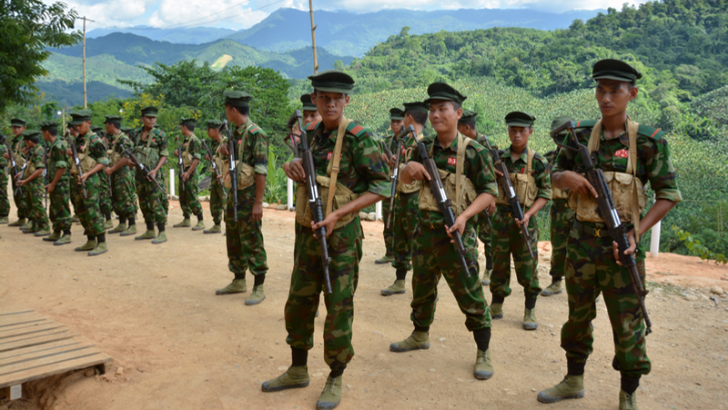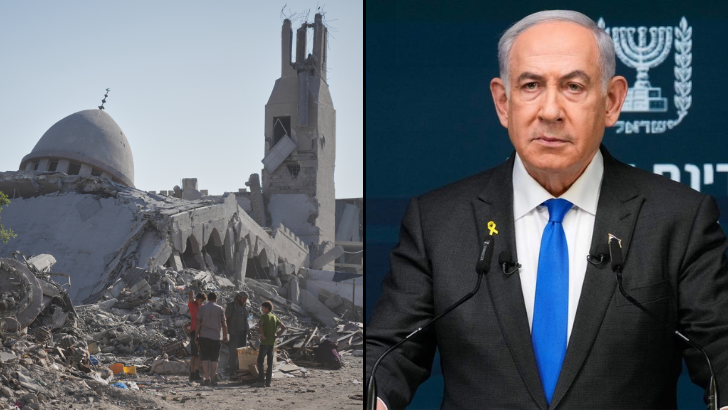Israel attacks Iran's nuclear, missile sites and kills top military officials
The leader of Iran's paramilitary Revolutionary Guard, Gen Hossein Salami, was confirmed dead.
PTI
-
Smoke rises up after an explosion in Tehran, Iran (PTI)
Dubai, 13 June
Israel attacked Iran's capital early Friday in strikes that targeted the country's nuclear programme and killed at least two top military officers, raising the potential for an all-out war between the two bitter Middle East adversaries. It appeared to be the most significant attack Iran has faced since its 1980s war with Iraq.
The strikes came amid simmering tensions over Iran's rapidly
advancing nuclear programme and appeared certain to trigger a reprisal, with
Supreme Leader Ayatollah Ali Khamenei warning that “severe punishment” would be
directed at Israel.
Multiple sites around the country were hit, including Iran's main
nuclear enrichment facility, where black smoke could be seen rising into the
air.
The leader of Iran's paramilitary Revolutionary Guard, Gen Hossein
Salami, was confirmed dead, Iranian state television reported, a development
that is a significant blow to Tehran's governing theocracy and an immediate
escalation of its long-simmering conflict with Israel.
The chief of staff of Iranian armed forces, Gen Mohammad Bagheri,
was also confirmed dead by Iranian state television. Other top military
officials and scientists were believed to have been killed.
In Washington, the Trump administration, which had cautioned
Israel against an attack during continued negotiations over Iran's nuclear
enrichment programme, said that it had not been involved and warned against any
retaliation targeting US interests or personnel.
Still, it seemed likely the US suspected an attack could be in the
offing, with Washington on Wednesday pulling some American diplomats from
Iraq's capital and offering voluntary evacuations for the families of US troops
in the wider Middle East.
Israeli leaders cast the preemptive assault as a fight for the
nation's survival that was necessary to head off an imminent threat that Iran
would build nuclear bombs, though it remains unclear how close the country is
to achieving that or whether Iran had actually been planning a strike soon.
“It could be a year. It could be within a few months," Prime
Minister Benjamin Netanyahu said as he vowed to pursue the attack for as long
as necessary to “remove this threat.”
"This is a clear and present danger to Israel's very
survival,” he said.
Khamenei issued a statement carried by the state-run IRNA news
agency. It confirmed that top military officials and scientists had been killed
in the attack.
Israel “opened its wicked and blood-stained hand to a crime in our
beloved country, revealing its malicious nature more than ever by striking
residential centers,” Khamenei said.
For Netanyahu, the operation distracts attention from Israel's
ongoing and increasingly unpopular war in Gaza, which is now over 20 months
old. There is a broad consensus in the Israeli public that Iran is a major
threat, and Israel's opposition leader, Yair Lapid, a staunch critic of
Netanyahu, offered his “full support” for the mission against Iran. But if
Iranian reprisals cause heavy Israeli casualties or major disruptions to daily
life, Netanyahu could see public opinion quickly shift.
Leave a Reply
Your email address will not be published. Required fields are marked *













.png)


.png)
.png)

.png)
